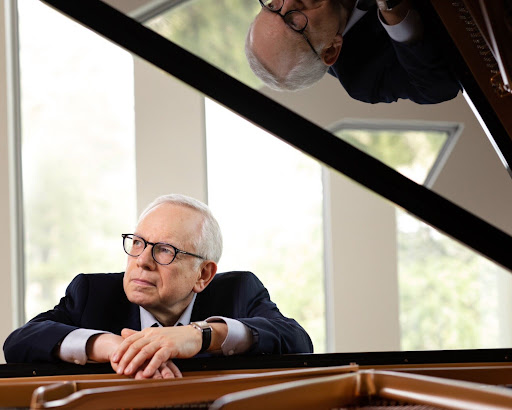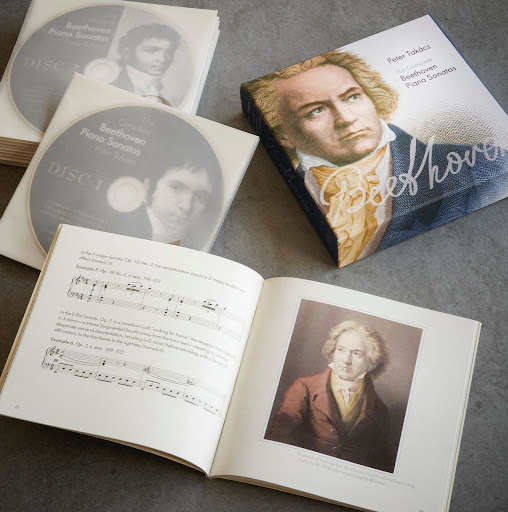by Daniel Hathaway

“It was a labor of love,” Takács said in a recent Zoom interview, “as well as a kind of global enterprise.” The elaborate project included eleven discs in SACD Surround Sound produced by Sony Austria, with some elements printed in Hong Kong and designs done in Los Angeles.
The original edition of 2,000 copies had sold out by 2016, which raised the question of a reissue. Happily — albeit mysteriously — more than 500 sets of the CDs were discovered sitting in a Cambria warehouse. That inspired a reissue with several alterations in design.
“The CDs are the same, with the same wonderful sound, but the box is quite a bit slimmer, the discs are now in translucent sleeves, and the booklet is more colorful and just contains my essay, The Mind of Beethoven. Once those 500 discs are sold, that’s it,” Takács said. Click here for ordering information.
The Takács recordings distinguish themselves by including the most complete set of Beethoven keyboard sonatas — not only the famous 32, but also a discarded slow movement from the Waldstein Sonata, a four-hand work, and the three early Elector Sonatas, “the product of an ambitious 12-year-old trying to show off his bona fides. I had to practice those very hard,” the pianist said.
He wryly noted that the CD format is fast becoming an outdated technology. “They’re so 1980s. A lot of my students don’t even know how to play a CD. ‘How do I get this into my phone?’”

One project, Beethoven’s Choral Fantasy, for which Takács was piano soloist, morphed into a virtual event because of COVID. Oberlin Arts and Sciences Orchestra conductor Tiffany Chang spent hundreds of hours on a computer assembling a virtual chorus and orchestra of 80 musicians from around the world (read our article here.) “It was very Beethovenian — a challenge in the face of adversity,” Takács said.
The Oberlin professor has brighter hopes for his 2021-22 plans, including performing Beethoven’s Third Concerto with Robert Spano and the Oberlin Orchestra.
In closing our conversation, I asked Peter Takács what he might ask the Great One if he had the opportunity to have a beer with Beethoven. He had a number of specific questions about details in LvB’s scores, some quite technical and pianistic, but he thought the composer might have a question of his own.
“Beethoven would probably ask me, ‘Why do you still play my music? It’s 300 years old. Don’t you have your own music?’ For my part, I’d be curious to know his reaction to developments since his time,” Takács said. “If I showed him a score by Boulez, what would he think?”
Published on ClevelandClassical.com September 8, 2021.
Click here for a printable copy of this article



